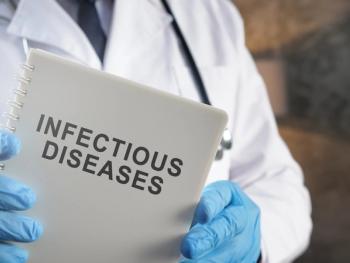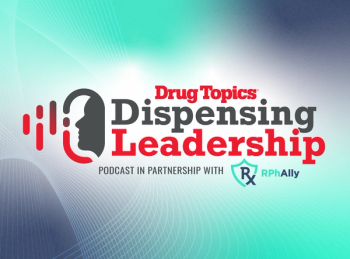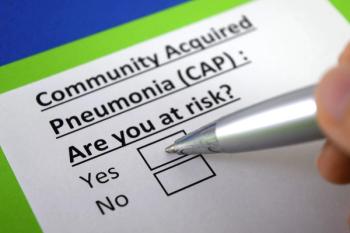
Representatives from XiFin, a revenue cycle management and workflow automation company, discussed the best approaches for independent pharmacies to engage with patients.

Representatives from XiFin, a revenue cycle management and workflow automation company, discussed the best approaches for independent pharmacies to engage with patients.

David Nau, BSPH, PhD, discusses evolving landscape of pharmacy, highlighting resilience, innovation, and new opportunities for future pharmacists in a changing health care world.

Warning: Being an owner or an employee at an independent pharmacy is likely hazardous to your mental health. Stress and burnout are rampant.

In part 2 of a roundtable on the Most Favored Nation Executive Order for prescription drugs, experts gathered to discuss recent developments and how they’ll impact the policy’s future.

Pharmacists evolve by enhancing skills, embracing AI, and focusing on patient care, ensuring relevance in a changing health care landscape.

From verifying vaccination status to administering immunizations, pharmacists can mitigate the spread of various infectious diseases.

In today’s world, the exponential use of technology is gradually becoming commonplace, and pharmacy businesses are expected to keep up with the growing digital landscape.

As shortages end, pharmacies that compound GLP-1s face lawsuits, stricter board oversight, and tougher FDA enforcement.

Pharmacists can help patients maintain muscle mass, meet their protein needs, and prevent nutritional deficiencies through evidence-based guidance that supports better overall health.

A collection of 4 major independent pharmacy groups filed an amicus brief urging Iowa representatives to shut down a recent challenge to proposed PBM legislation.

This episode explores a dynamic pharmacy profession and how self-inflection can lead to pharmacists achieving their passions and improving care in their communities.

Nicole Pezzino, PharmD, BCACP, BC-ADM, CDCES, discusses the emerging role of artificial intelligence in pharmacy and how it’s used alongside other developed technologies.

Balancing opioid use with compassion and clinical best practices ensures safe and patient-centered care, supporting pain management and addiction.

With uncertainty in dosing recommendations, researchers aim to assess the efficacy of pneumococcal conjugate vaccines for the pediatric population.

Nicole Pezzino, PharmD, BCACP, BC-ADM, CDCES, discusses why the underutilization of technology could be hurting pharmacy businesses.

Celebrate the vital role of pharmacists in health care this American Pharmacists Month.

Further, they found weight loss prior to 75-g oral glucose tolerance test was a preventive factor for both impaired glucose tolerance and diabetes.

Amgen launches AmgenNow, which is a new direct-to-patient program that will start with evolucumab.

As the sixth approval for roflumilast in less than 4 years, the cream is expected to impact the 1.8 million children who have reported atopic dermatitis.

Nicole Pezzino, PharmD, BCACP, BC-ADM, CDCES, discusses the opportunities incorporating pharmacy technology can create for pharmacies and their businesses.

Don Roosan, PharmD, PhD, discusses the ethical implications of AI in pharmacy, focusing on patient safety, transparency, and the importance of human connection in care.

Don Roosan, PharmD, PhD, discusses the changing technology, challenging conventional boundaries of pharmaceutical practice through telepharmacy and artificial intelligence.

Researchers conduct a pilot study that assesses clinical pharmacists’ interventions and management of chronic diseases for older adults living in senior housing facilities.

In this episode, Natalie DiPietro Mager, PharmD, PhD, MPH, chats with Hannah Fish, PharmD, CPHQ, about the NCPA’s maternal immunizations tool kit and pharmacist support for mothers.

Prior to the government shutdown, the FDA approved a generic version of mifeprisone without a public announcement.

As contraceptive care services remain fragmented across many US states, pharmacists are seemingly rising as key touch points for women’s health management and various types of reproductive care.

Significant patient reports show a lack of response to treatment for community-acquired pneumonia, leading researchers to investigate the use of corticosteroids.

Ashley Moose, PharmD, owner of Moose Pharmacy of Monroe and director of network development at CPESN USA, capped off this fall’s event and discussed where to access sessions on demand.

With disruptive PBMs rising in the marketplace amid constant calls for lowering drug prices, companies such as WriteWise are positioned to revolutionize the way patients access their pharmacy benefits.

Lissette Logan, PharmD, and Danielle Weaver, PharmD, discuss their use of the PRISM platform for providing contraceptive and family-planning services.